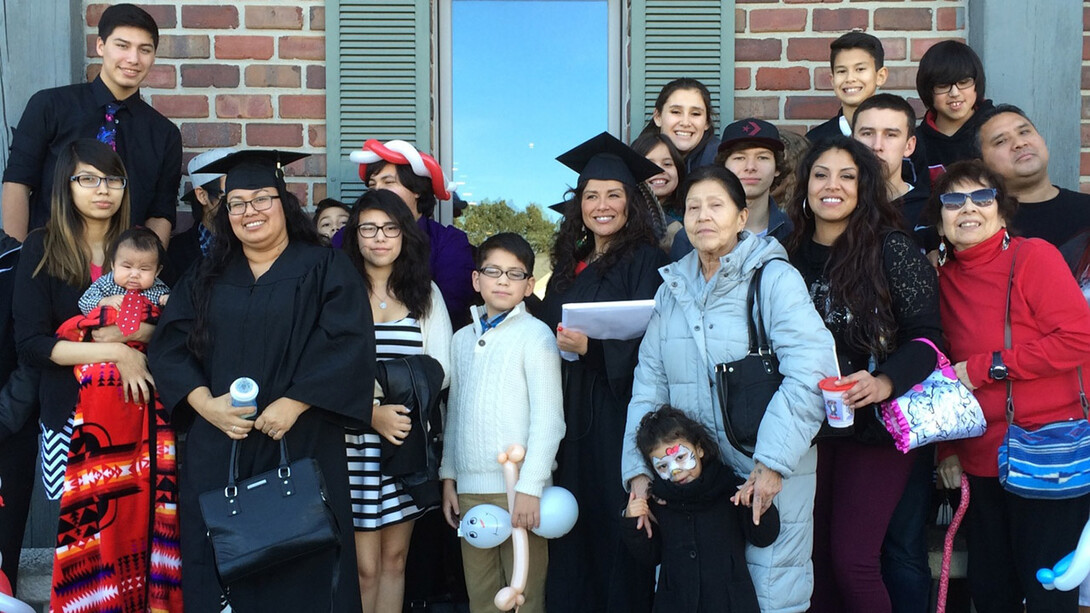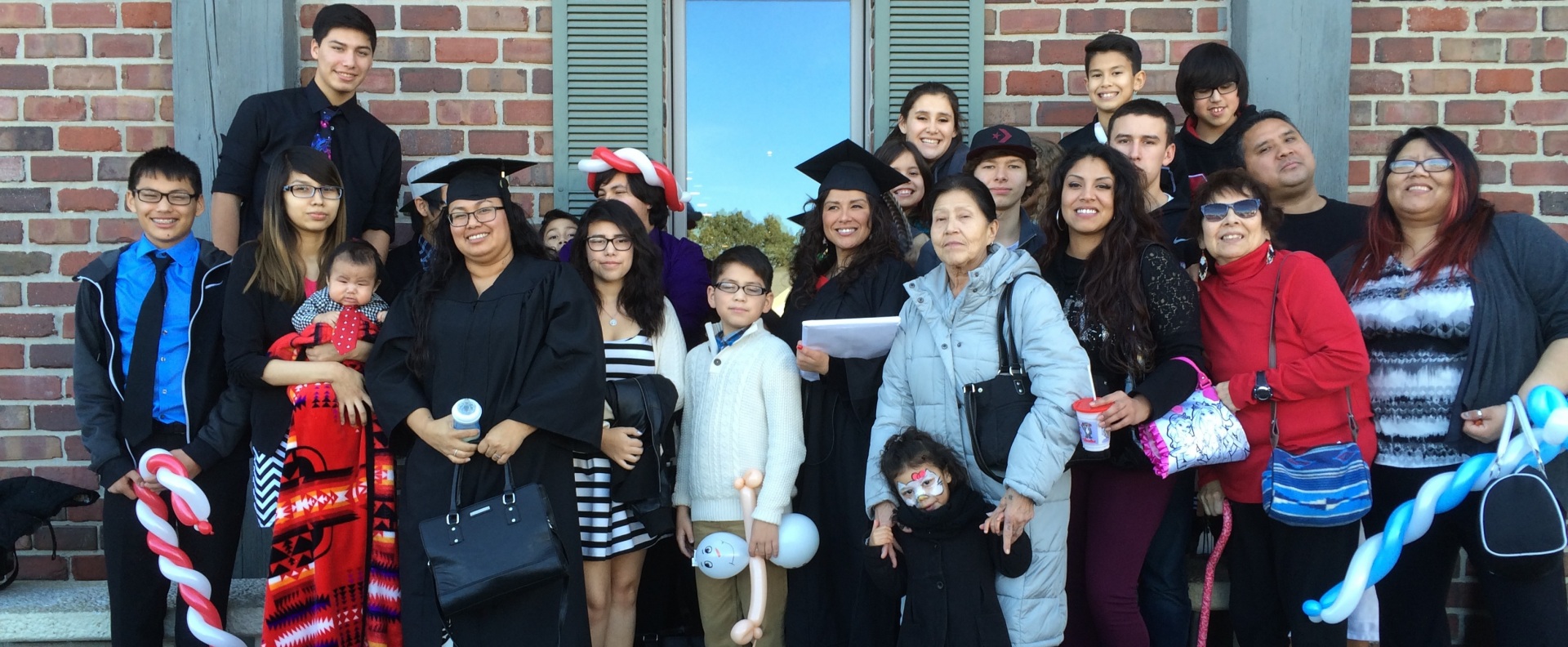
For more than 20 years, the Indigenous Roots Teacher Education Program in the University of Nebraska–Lincoln’s College of Education and Human Sciences has prepared American Indian students to become elementary education and bilingual teachers working in American Indian-serving school districts in Nebraska. Now a new grant from the U.S. Department of Education will allow the program to expand its efforts and focus on training Indigenous school principals and administrators.
The ROOTS program will reinforce its partnerships with Little Priest Tribal College, the Nebraska Department of Education and K-12 school districts in eastern Nebraska to address the rising demand among reservation schools to place American Indian role models in classrooms and as school administrators.
Nebraska Department of Education data from this year shows that of the 2,100-plus school administrators in the state, only 0.1% are American Indian/Alaskan Native.
“Representation in the classroom matters significantly to Indigenous students,” said Nancy Engen-Wedin, who has coordinated ROOTS for more than two decades. “To enhance representation, we must increase the number of American Indian teachers and school administrators who serve as role models, education leaders, in Nebraska’s Indigenous schools and communities.”
Amy LaPointe is one of 54 students to have earned a degree and teacher certification through the ROOTS program. A 2004 graduate, she currently serves as the education director for the Winnebago Tribe. Ninety percent of the 586 students in Winnebago Public School are American Indian. LaPointe is working to introduce more Native influence into the school, and one way to do that is by filling administrative roles with Native people.
“Historically, these positions have been filled by those outside of our community,” LaPointe said. “The more our kids can see familiar people in these positions, they will feel more empowered to say ‘If they can do it, I can do it.’”
In addition to placing American Indian role models in schools, program leaders believe the future administrators will be able to re-energize Nebraska’s reservation schools by helping to renew Native languages and integrate local culture and history into curriculum. Ultimately, ROOTS program graduates will provide essential support to strengthen academic and social outcomes for Nebraska’s schools serving American Indian students.
Six American Indian students will be selected to participate in the program’s first administrative cohort, with school districts serving Native students helping to identify potential students for the program. Students will complete coursework and internship experiences, and graduate after two to three years.
ROOTS is unique because it brings the program to where students live and work in the community, directly addressing an access barrier that currently limits the number of American Indian students pursuing degrees in higher education.
The course structure will mirror the Master of Education in Educational Administration program, a 36-credit-hour program that meets Nebraska Department of Education requirements for the elementary or secondary principal endorsement. The program blends online and face-to-face instruction and the latest technology for communication, including videoconferencing, a learning management system and virtual reality.
“This project is based over 20,000 square miles, so it’s important to use dynamic web-based course delivery to meet the students where they are,” said Shavonna Holman, assistant professor of practice and P-12 school leadership Master of Education coordinator in the Department of Educational Administration.
Upon graduation, students will receive assistance in finding employment in qualifying school districts serving American Indian students. They also will receive support during their first two years as school administrators, in which they will have opportunities to engage in statewide professional development and share their experiences with stakeholders to elevate Indigenous knowledge systems.
Nepthys Justo graduated from ROOTS in 2007. She now works as a third-grade teacher at Niobrara Public Schools, where about 59% of students are Native American.
“This program means everything to me,” Justo said. “The ability to take classes online was what originally appealed to me, but I also discovered a great support system within the program, which was important because I was raising young children at the time. It really helps when you know you have people behind you who want you to succeed.”
This support system has enabled ROOTS to develop a strong reputation. The program is supported by Indigenous community members, local tribal councils, tribal community colleges, education agencies and target school districts, as well as the students and graduates pursing degrees and employment. As a result, there are now more American Indian teachers in Nebraska than ever.
As a new chapter for the ROOTS program begins, it hopes to leverage this success to further enhance the educational outlook for Native children, families, schools and communities across Nebraska.
For more information, contact Nancy Engen-Wedin, project director of the Indigenous Roots program, at 402-472-3856 or nengenwedin2@unl.edu.








